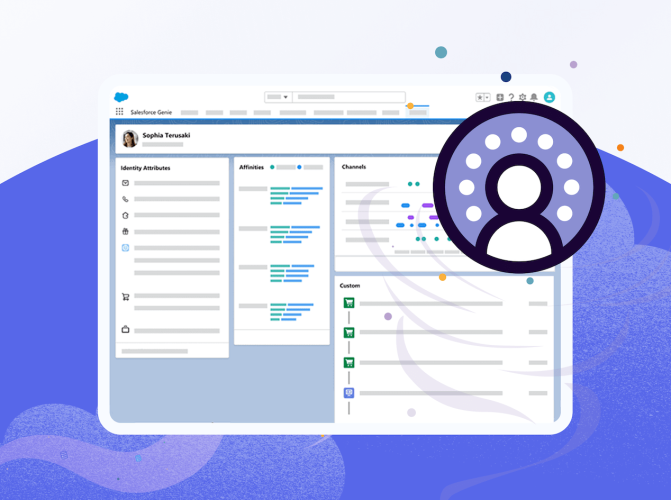4 Ways Public Sector Uses Data To Deliver Personalised Experiences



Learn how public sector organisations are using Data Cloud to integrate data from multiple sources to enhance public service delivery.
Within the public sector, the volume of data that government departments store about individuals and organisations continues to grow exponentially. Departments can use this data to enhance decision-making, improve services for users, and potentially reduce costs for taxpayers. The UK Digital Strategy even emphasises the importance of unlocking the power of data for economic growth. In fact, the UK data economy had the biggest overall impact of any EU country in absolute terms, at an estimated £125 billion in 2021.
Yet how can public sector organisations bring together their data to get the most out of it? Salesforce Data Cloud provides a solution to unify and activate data within user experiences. For example, applications historically required users to manually enter data to trigger a workflow, but Data Cloud uses data and AI to drive processes, enabling organisations to deliver higher-quality experiences.
The recent announcement that Data Cloud will offer secure, onshore data hosting for public sector bodies is a pivotal development. This move underpins AI strategies and is set to boost AI adoption and data-driven decision-making within the UK Government, given the critical role of data.
Effectively Use Your Data
For organisations today, it’s not just about how much data you have, but how effectively you use it. Read how Data Cloud unifies data to deliver better customer experiences with AI.

What is Salesforce Data Cloud?
Data Cloud has evolved from the Customer Data Platform (CDP) to reconcile structured and unstructured data to deliver intelligent services grounded in the department’s knowledge and historical interactions. Salesforce was motivated to expand use cases for the product through customer research that showed:
- Data sets are continually being created and should be seamlessly integrated into enterprise-level data unification tools, without the need for expensive IT programmes.
- Data lakes and warehouses, while intended to solve the same problem, have turned into silos that fail to deliver insights back to users.
- The need to work with unstructured and structured data, from known and unknown sources, becomes more urgent in the age of generative AI
By addressing these use cases, Data Cloud can uncover insights that can help organisations deliver more personalised service for citizens to proactively inform them on licence renewals, increase employee productivity by prioritising critical calls at service centres, or monitor trends to improve government programmes.
What is the value of Data Cloud for government departments?
- An easy way to connect to data sources is through out-of-the-box connectors to platforms such as Azure, AWS, and Snowflake.
- It offers flexible options on ingestion patterns, from batch to streaming, to Zero ETL where data remains at source but with full semantic access via query federation.
- It unifies disparate schemas and formats into a canonical model, including sophisticated unification through rules or AI. Resolved data is represented as flexible data graphs for use case-specific interpretation.
- It harmonises and helps you act on data; this includes visualisation through BI tooling, generative AI grounding with business data, highly targeted segments for outreach campaigns, or insights into the flow of work to aid data-driven decision-making. It feeds large AI models through turnkey connectivity to services including AWS Sagemaker and Google Vertex AI.
“Government classification of citizen data often mandates onshoring of data, which can lead to technology decisions being driven by where the data resides, not the transformation possibilities. With Data Cloud being hosted in the UK from July 31st, public bodies can leverage our latest AI technologies far more easily. This ensures that data is consolidated and integrated into secure cloud environments, meeting the highest standards of data protection and privacy” further added Chris Pannell, VP, Public Sector Marketing & Data Cloud.
Data Cloud’s greatest value is in its ability to bring together siloed data, whether in legacy systems or data lakes. It supports multi-modal formats, like unstructured data from documents and emails, or structured data from a database. Overall, it is an opportunity for public sector departments to holistically understand their users from historical touchpoints to drive better experiences.
Learn how Public Sector customers innovate with data.
Digital transformation is a journey. Read best practices from other Central, Local or public sector organisations on how they use Salesforce to improve citizen experiences and digitise government operations to deliver greater public service.











